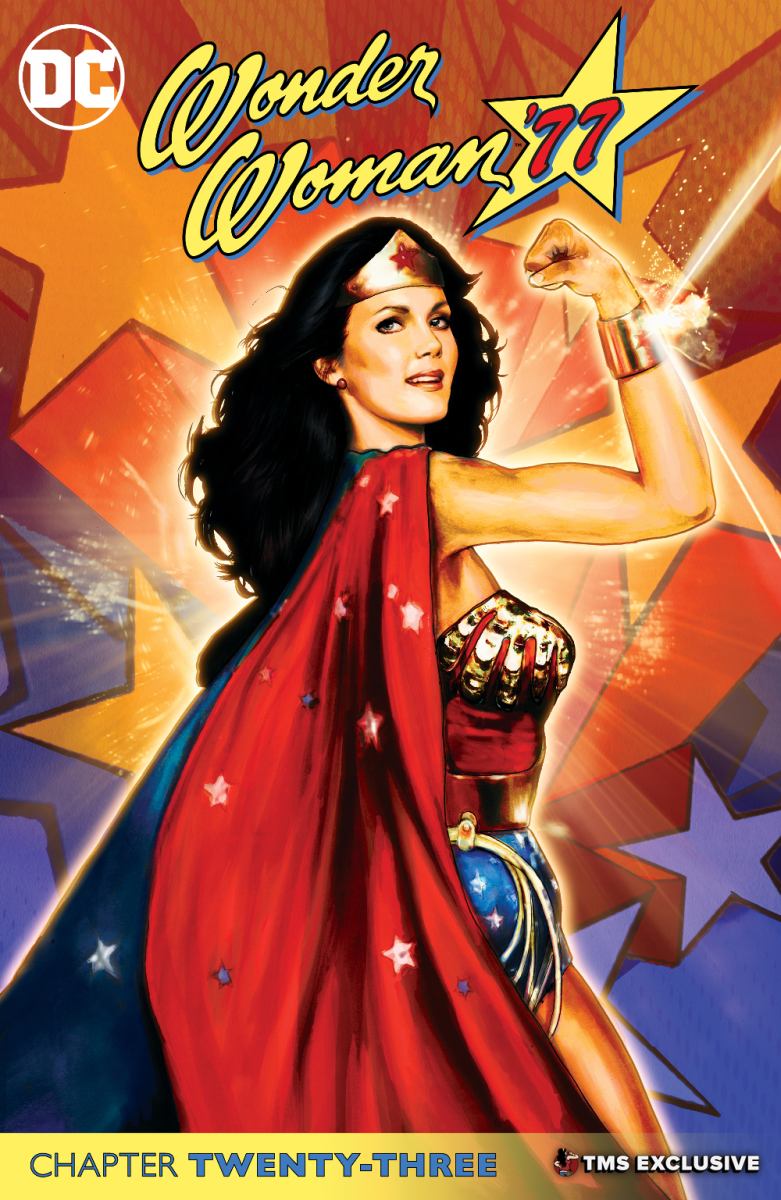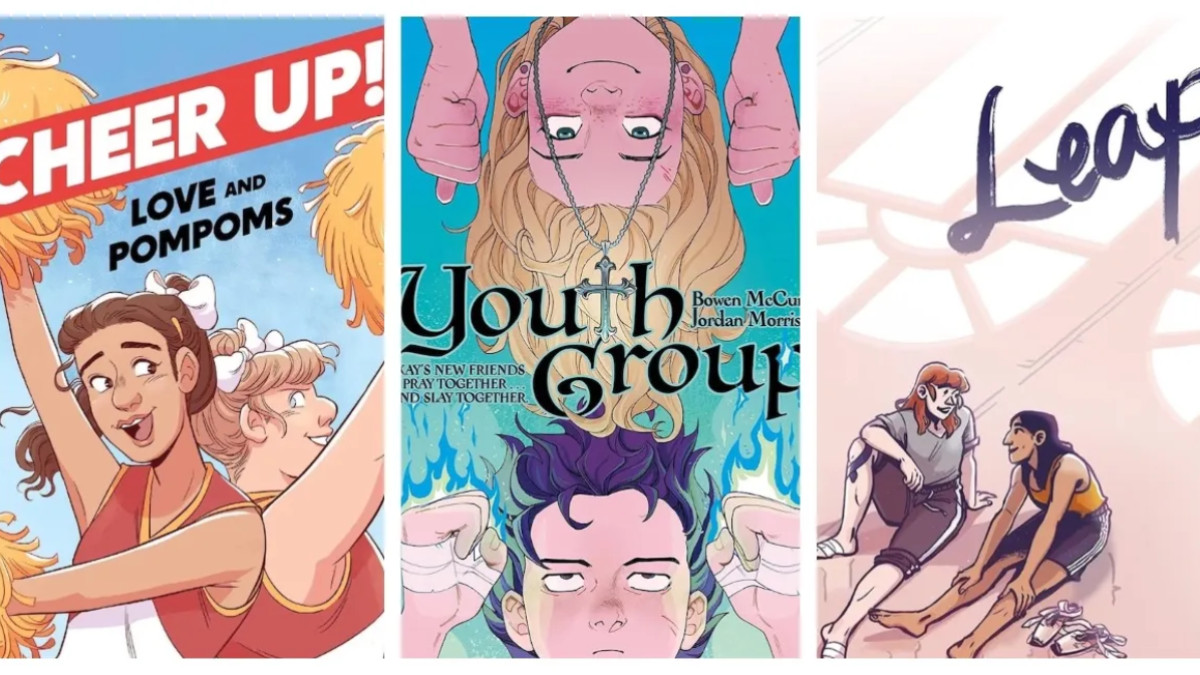[imageviewer id=”2932″]
Amy Chu, previously known for writing Poison Ivy: Cycle of Life and Death for DC comics and The Great Cosmic Race for Charmz, has been tapped to write another iconic female lead, and this time, it’s one of the most well-known heroines ever: Wonder Woman!
Chu will be writing a chapter in the Wonder Woman ’77 series, which are light-hearted one-shots based on the ’70s-era TV show Wonder Woman. We’ve got an exclusive look at the cover and the first four pages of chapter 23 in the series, which you can read through in the gallery at the top of this page. We also had the chance to ask Chu a few questions about her vision for the character. First up, here are the rest of the deets on the book, and then on to the interview!
WONDER WOMAN ’77 #23
“Worlds Collide” when a tape full of government secrets gets swapped for some excellent Super Funk!
Writer: Amy Chu
Artist: Dario Brizuela
Colorist: Jenn Manley Lee
Cover Artist: Cat StaggsPage Count: 23 Pages
Digital Release Date: August 18, 2016
Age Rating: 12+ Only
Sold by: DC
Maddy Myers (TMS): What would you say the audience is for Wonder Woman ’77? Has the creative team heard from any older readers who watched the show and are reading the comic books now?
Amy Chu: It’s E for Everyone. I think I had a “damn” in there, and the editors made me take it out! Perfectly safe for the kiddies! This is my first Wonder Woman ’77, so I haven’t heard anything directly, but I’m pretty sure if there’s one comic that my mom and dad are going to read that I wrote, it’s going to be this one.
TMS: Many readers nowadays will be too young to remember the original show. Do you think that would make it difficult for them to jump on board?
Chu: Oh no, definitely not. These are all one shots- you should be able to jump on board easily. I made sure there were some fun inside moments you’ll get if you’re a fan of the show, or Wonder Woman, or the ’70s.
TMS: What’s your own experience with Wonder Woman – the TV shows, the comics, etc? Is Lynda Carter’s version the one that you think of first when you think of Wonder Woman (as she is for many people)? Which version(s) of the character do you like the best?
Chu: That’s a huge question – we’d need a whole weekend retreat to cover that! I read the comics and watched the TV show absolutely. I love ALL Wonder Woman, from the original comics to Gal Gadot.
TMS: Although I love the original ’70s Wonder Woman show, it’s definitely a product of its time. In reading the WW ’77 issues thus far, I’ve noticed that the comics feel like both a tribute to the original show, but also more forward-minded in other ways. How did you balance wanting to be “accurate” in writing the politics of the ’70s, while still wanting to make sure that Diana’s adventures resonate with modern readers?
Chu: It’s fiction, not journalism, but I do like to entertain and educate at the same time. Getting some of the history is important to me – Jimmy Carter, Watergate – so I did quite a bit of research and sent Dario [Brizuela, the artist] a lot of reference photos.
TMS: Another change here compared to the ’70s era TV show is that the comic book has taken the opportunity to include more diversity in other ways. For example, your chapter introduces us right away to a mega-successful group of black musicians on their way to play a concert for the President. They’re not just side characters, either – it looks like they’re shaping up to be primary players in the storyline for your issue. There were some black characters in the original TV show, but certainly not many. What inspired you to bring this new group of characters to the fore? Any real-life funk bands that were inspirations for these characters?
Chu: Well, exactly that. I didn’t want to just put a bunch of people of color in the background and call it a day. Funk was huge back then, and no one had done this particular story yet so it seemed obvious. The characters are totally inspired by real life musicians – George Clinton, Parliament, Funkadelic.
TMS: Many of the other stories in the Wonder Woman ’77 arc so far have been stand-alone, light-hearted fare – very different in tone than the other Wonder Woman stories happening lately. What’s it like to write something so light-hearted for Wonder Woman, when “gritty” superhero fare has been so popular lately (both in comics and movies)?
Chu: It’s really refreshing. I enjoy reading and writing both. But I like having more of the fun stuff for all readers. I have two young boys and they should be able to read Wonder Woman alongside their grandparents, so hopefully this series is that.
Want more stories like this? Become a subscriber and support the site!
—The Mary Sue has a strict comment policy that forbids, but is not limited to, personal insults toward anyone, hate speech, and trolling.—
Follow The Mary Sue on Twitter, Facebook, Tumblr, Pinterest, & Google+.









Published: Aug 17, 2016 12:00 pm